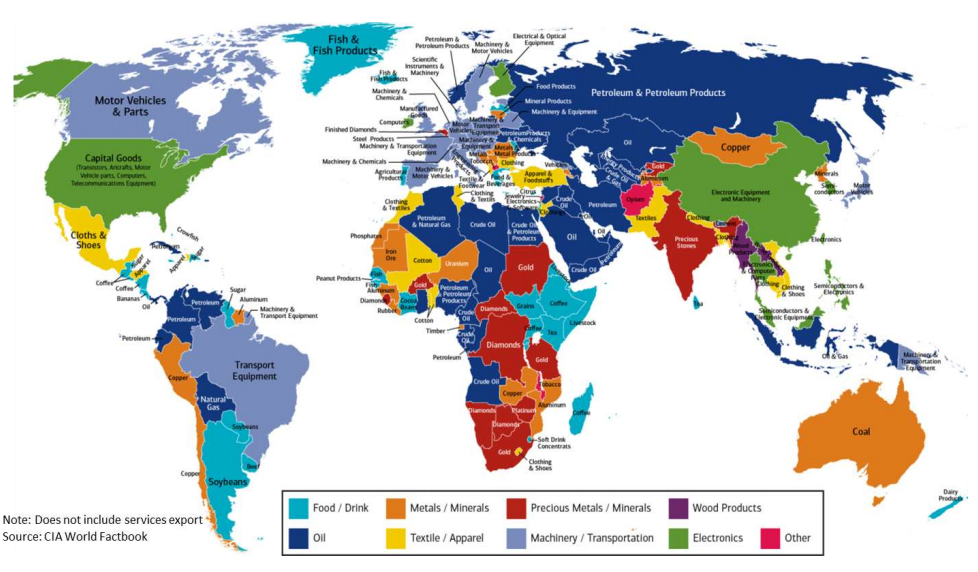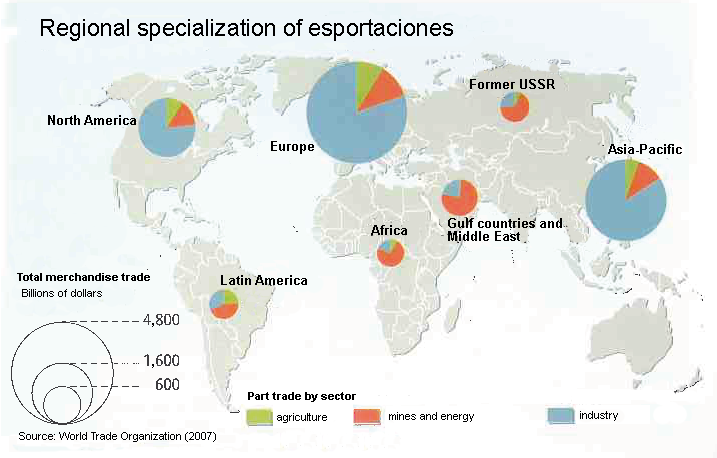International trade is the exchange of goods and services between one country and another.
International trade has been present throughout much of history, starting from the Mediaeval Silk Road or the Transoceanic Trade between Europe and America during the Modern Era, after Europeans arrived to America.
Anyway, the economic, social, and political importance of the international trade has been on the rise in recent centuries.
Nowadays, Mutual dependence between national economies is increasing constantly as international trade grows. Between 1980 and 2010, world trade multiplied by a factor of four. The developed, industrialised countries (Western Europe, USA, China, Canada, Japan…) control 80% of the world trade.
Today, since we all produce, distribute and use products from all over the world, the international economy is like one great market. In this growth of economic relations between countries, the multinationals are particularly influential.

G5Wp92w.png
The most highly developed countries, together with suppliers of certain raw materials such as petroleum and coffee, are the ones with the most trade.
This imbalance contributes t the economic dependence of some countries (mostly developing countries) upon other, developed, countries.
In the resulting situation of inequality between different parts of the world, the developed countries have a double advantage. Not only do a number of transnational / multinational companies have the highest sales figures in the world, bur furthermore their economic strength gives those companies extraordinary power.
Walmart, for example, is the world’s powerful company and the biggest private employer in the world with 2,2, million employees working on 11.500 stores in 27 countries. This retail stores sell food, clothes and almost everything. Its annual revenues (US$ 20.428 billion in 2024), for example, exceed the GDP (the gross national product) of any developing country… Austria United Arab Emirates, Denmark, and Qatar…


